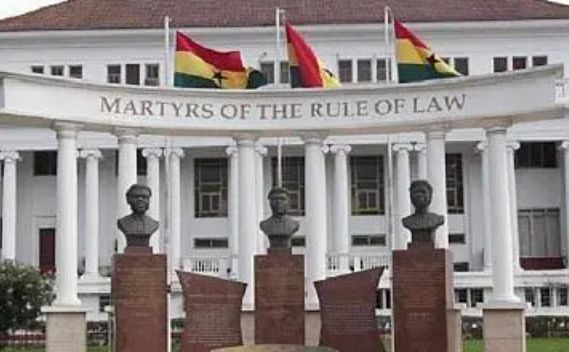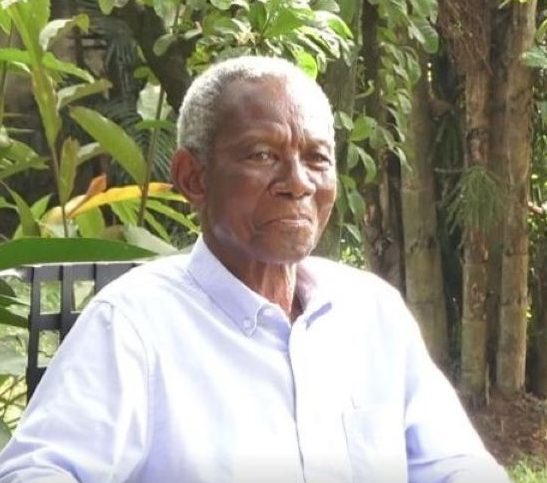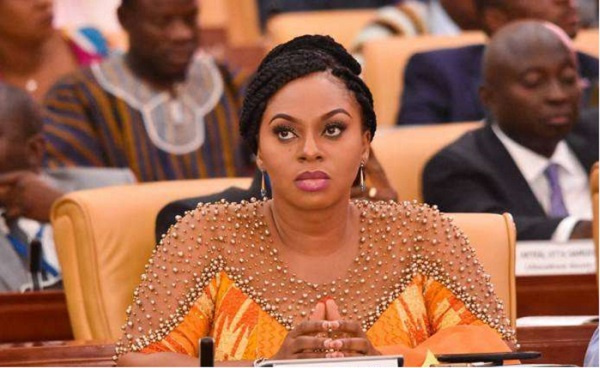Why the Supreme Court threw out application against Deputy Speaker’s voting ruling

The application filed on April 8, 2022, by Justice Abdulai who doubles as a law lecturer at the University of Professional Studies sought a review of the judgement of the Supreme Court on March 9, 2022.
The Supreme Court, in a seven-member panel decision, ruled that the Deputy Speaker of Parliament could vote to form a quorum where a decision had to be made that required the same, per the dictates of the constitution.
This judgement followed an earlier petition by the plaintiff, Mr. Abdulai, following the approval of the 2022 Budget on November 30, 2021, seeking that the process be described as unconstitutional and the Deputy Speaker, Joseph Osei Owusu’s vote to form a quorum be described as same.
The 9-member panel, on Tuesday, April 26, 2022, unanimously stated that the application filed by the law lecturer was unmeritorious.
Here are details of the basis on which the review application was dismissed by the Supreme Court:
– According to the Ghanaiantimes, Deputy Attorney-General, Diana Asonaba Dapaah, argued that Mr Abdulai failed to demonstrate a miscarriage of justice as he had suggested following the Supreme Court’s initial decision on March 9, 2022.
– Deputy Attorney General also indicated that the ‘long reference to previous constitutions did not meet the criteria for a review application”.
– “The long reference to previous constitutions does not meet the criteria for a review application. The plaintiff has failed to show how a miscarriage of justice has occasioned or showed any new matter that should have been considered. Present application is unmeritorious and a clear abuse of the court process,” myjoyonline quoted Diana Asonaba as having said.
Background
Jusice Abdulai, filed a suit before the Supreme Court seeking a decision by the Bekwai MP, Joseph Osei-Owusu to vote to form a quorum for the 2022 Budget approval on November 30, 2021, to be declared unconstitutional.
He also asked the Supreme Court to interpret Articles 102 and 104 of the 1992 Constitution for the same purposes and to declare the whole proceedings in Parliament on November 30, 2021, which led to the passage of the 2022 Budget as unconstitutional.
This petition was struck out by the Supreme Court on March 9, when the court disagreed with the views of Mr Abdulai.
The seven-member panel presided over by Justice Jones Dotse held that the Deputy Speaker had a right to vote and struck out portions of the Standing Orders of Parliament which said that “A Deputy Speaker or any other member presiding shall not retain his original vote while presiding.”
The court ruled that the Standing Order 109 (3) of the Standing Orders of Parliament was inconsistent with the 1992 Constitution; that the decision of Parliament approving the 2022 Budget was valid.
It also stated that Ghana’s position on the right of the presiding officer of Parliament to vote on a matter was in consonance with the law or practice in the Commonwealth and Anglo-American Jurisdictions as the United Kingdom, United States, Canada, Australia, Kenya and South Africa.
Mr. Abdulai however filed for a review to request that the earlier decision taken by the Supreme Court be rescinded.
According to him, the SC’s decision was a miscarriage of justice.
He further argued that as part of the overriding constitutional principles and values of the 1992 Constitution, fairness, equity, justice, and the rule of law among other internationally recognized constitutional values was important for growth and development.





